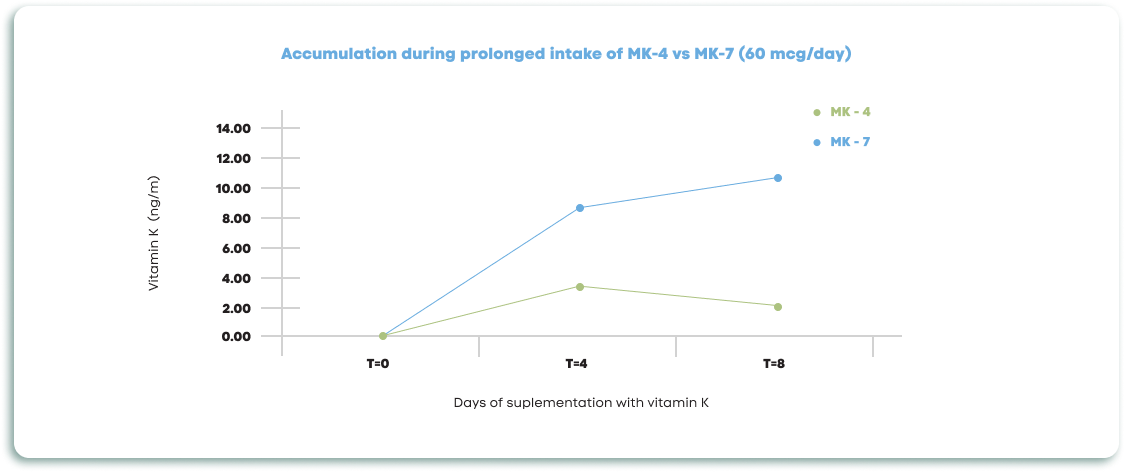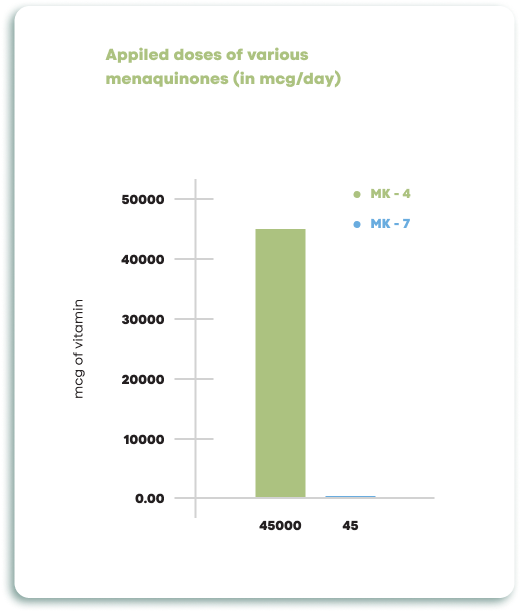What are K vitamins?
The two most important forms found in food are vitamin K1 (phylloquinone) and Vitamin K2 (menaquinone).
K vitamins are a group of fat-soluble vitamins. The two most important forms found in food are vitamin K1 (phylloquinone) and Vitamin K2 (menaquinone). Vitamin K1 is known for its role in blood coagulation (clotting). Vitamin K2 also contributes to coagulation, but more importantly, it is a form newly recognized for its essential role in building and maintaining strong bones, as well as inhibiting calcium deposits in the arteries and blood vessels.
Supplemental Vitamin K2 exists in several forms, but the most common ones are the synthetic menaquinone-4 (MK-4) and the natural menaquinone-7 (MK-7).
MK-7 is the superior form of vitamin K
All K vitamins are similar in structure, but differ in the length of the “side chain” – the longer the side chain, the better effect and efficiency. Consequently, the long-chain menaquinones (especially MK-7) are the most desirable as they are nearly completely absorbed (body requires smaller doses) and stay in the blood for the longest time. This makes Vitamin K2 also available for tissues outside the liver, namely bones, arteries, and soft tissues.
In fact, studies consistently show that Vitamin K2 as MK-7 is much more effective compared to MK-4. This is mainly due to MK-7’s significantly greater:
- Absorption & Half-Life Time
- Accumulation in the Serum
- Efficacy
Absorption & Half-Life Time
Both Vitamin K2 as MK-4 and MK-7 are nearly completely absorbed, with peak serum concentration at 2 hours for MK-4 and 4 hours for MK-7 after intake. However, MK-4 quickly disappears from the circulation, whereas MK-7 is capable of accumulating in the bloodstream (remaining in the body for approximately 72 hours). Therefore, supplementation with MK-7 only needs to be taken once a day and is a more convenient option.

Accumulation in the Serum
The long half-life of MK-7 results in significantly better accumulation compared to MK-4. Research shows that MK-7 has better absorption. Hence, smaller quantities and less frequent intakes of MK-7 are sufficient to supply all of the tissues.

Efficacy
45mcg/daily of MK-7 is proven to be sufficient in order to increase the carboxylation process and the activation of vitamin K-dependent proteins such as Osteocalcin for bone health and Matrix Gla Protein (MGP) for heart health.

